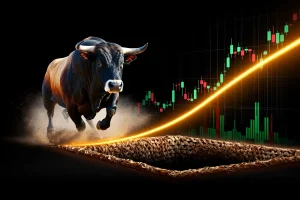Health or Wealth? The Psychology Behind Both
May 12, 2025
“Those who understand the herd but walk apart from it gain twice—first in their bodies, then in their wealth. Those who merely follow gain neither but believe they risk nothing.”
The Hidden Vectors of Collective Health Behaviour
Mass psychology doesn’t just move markets—it shapes what enters your body. The vectors that drive collective health decisions operate on the same emotional circuitry that governs financial bubbles and crashes. When you understand this, you gain an asymmetric advantage in both domains. The crowd acts as a single organism with predictable behavioural patterns, whether consuming information about miracle diets or “can’t-miss” investment opportunities.
I’ve spent decades tracking these patterns. The psychological signatures are identical. The same emotional cascades that drive market frenzies—fear, greed, conformity, narrative addiction—manifest in how societies approach health. And just as in markets, the majority consistently make decisions that satisfy short-term emotional needs while sacrificing long-term outcomes.
This isn’t accidental. It’s systematic. And once you see the pattern, you can position yourself accordingly.
Mass Health Vectors: Decoding the Emotional Currents
Health decisions, at scale, aren’t rational. They’re emotional reactions dressed in logical-sounding justifications. Consider the pattern: A new health trend emerges. Early adopters signal virtue and insider knowledge. FOMO (fear of missing out) accelerates adoption. Media amplifies. Counterarguments are suppressed through social pressure. The trend peaks with maximum conviction when it’s most vulnerable to collapse.
Sound familiar? This is exactly how market bubbles form.
Take the gluten-free explosion of the 2010s. What began as a necessary protocol for celiac disease patients transformed into a mass movement with quasi-religious fervour. At peak adoption, approximately 30% of Americans were trying to eliminate gluten—while only about 1% had medical necessity. The vector wasn’t medical evidence; it was emotional contagion.
But here’s where vector analysis reveals its worth: Understanding that this wasn’t about gluten. The underlying vector was control anxiety in an increasingly chaotic food system. People weren’t buying gluten-free products; they were purchasing the illusion of control, a narrative that explained their nebulous health concerns, and membership in a tribe that validated their choices.
The same vector drives “meme stock” frenzies. GameStop wasn’t about fundamental value but about narrative control, tribal belonging, and the emotional need to participate in something larger than oneself. The directional force wasn’t financial—it was psychological.
The Temporal Disconnect: Why Most Fail at Health and Wealth
Most health initiatives fail because most investment strategies fail: humans are temporally misaligned with their own interests. Our emotional systems evolved for immediate threats and rewards, not for multi-decade optimisation problems.
Consider sugar consumption. The average American consumes approximately 152 pounds of sugar annually—knowing it damages long-term health. Why? Because the reward circuit is immediate while the consequences are distant. This same temporal disconnect explains why investors panic-sell during downturns and buy at market peaks.
The vector mathematics is identical: immediate emotional relief trumps long-term optimisation when the psychological pressure reaches certain thresholds.
I’ve observed this pattern repeatedly. People will abandon decade-long health regimens during three weeks of holiday festivities, just as they’ll abandon decade-long investment strategies during three weeks of market volatility. The time perception vector collapses under emotional pressure.
Those who succeed in either domain have developed an immunity to this temporal distortion. They’ve trained themselves to perceive long-term consequences as more real than short-term discomfort.
Strategic Discipline: The Transferable Skill
Building a healthy body and building wealth require the same cognitive infrastructure: the ability to override immediate emotional impulses for distant rewards. This isn’t natural. It’s an acquired capacity.
Consider two case studies:
- Warren Buffett: Beyond his investment acumen, Buffett’s exceptional quality is his psychological independence. He refused to participate during the 1999 tech bubble despite massive social pressure and temporary underperformance. His ability to resist mass psychology protected billions in value. Notably, he applies the same discipline to health, once saying: “I checked the actuarial tables, and the lowest death rate is among six-year-olds. So I decided to eat like a six-year-old.” His simplicity and consistency in diet and investment reflect psychological independence from mass trends.
- The Blue Zones: Communities with the highest concentration of centenarians don’t follow fad diets or health trends. They maintain consistent, simple dietary patterns over decades, resisting the psychological pull of nutritional fashions. Their health returns compound like well-managed investments—not through complexity, but through consistency, unmoved by external emotional vectors.
Both examples demonstrate vector independence—the ability to maintain directional integrity despite cross-currents of collective emotion.
Mass Psychology and Market Cycles in Health Industries
The health market reflects the same irrational exuberance cycles as financial markets. The pattern is predictable:
- Innovation Phase: A legitimate health breakthrough emerges (like antioxidants in the 1990s)
- Early Adoption: Evidence-oriented audiences incorporate it reasonably
- Mass Awareness: Media simplifies and amplifies the message
- Exuberance Phase: Companies flood the market with products claiming the benefit
- Overextension: Claims exceed evidence; magical thinking proliferates
- Backlash: Contrary evidence emerges; early adopters move to new trends
- Normalisation: The innovation finds its appropriate, limited place
Smart health consumers, like smart investors, position themselves at phase 1-2, not 4-5 when the mass psychology reaches fever pitch. They maintain psychological distance from the emotional contagion that drives the cycle.
The supplement industry perfectly demonstrates this pattern. Resveratrol, turmeric, CBD oil—each followed this precise market psychology curve. Those who understood the vector could capture the legitimate value while avoiding the bubble phase where quality collapses while prices peak.
Psychological Positioning for Health and Wealth
Like the disciplined investor, the disciplined health practitioner develops position sizing appropriate to confidence levels. They don’t “bet the farm” on unproven interventions, regardless of social momentum. They maintain diversification in their health approaches while concentrating on proven fundamentals.
Consider exercise patterns: The disciplined practitioner doesn’t abandon decades of consistent activity for the latest high-intensity trend. They might incorporate new evidence, but their core position—regular movement, progressive challenge, recovery—remains intact despite shifting fashions.
Similarly, the disciplined investor maintains asset allocation principles despite the latest sector rotation or trend. They might adjust at the margins based on new information, but they don’t radically reposition based on mass psychological movements.
This isn’t just an analogy—it’s the same psychological mechanism operating in different domains. Those who can maintain position discipline in health choices can transfer that same skill to investment choices. The neural pathways are identical.
The Contrarian Advantage in Both Domains
Both health and investment success often require contrarian positioning—the willingness to diverge from crowd behaviour at precisely the moments when social pressure is most intense.
When everyone adopted extreme low-fat diets in the 1990s, those who maintained moderate healthy fat consumption preserved better health. When everyone piled into tech stocks in 1999, those who maintained diversification preserved wealth.
The mass mind operates on emotional momentum, not evidence evaluation. This creates predictable periods when the gap between perception and reality reaches maximum extension, precisely the point where the independent thinker gains advantage.
This is vector analysis in action: it identifies the direction of crowd belief and its acceleration, emotional charge, and maximum point of extension before mean reversion becomes inevitable.
Patience and Discipline: The Transferable Mental Models
The fundamental insight: Nutrition isn’t about food, and investing isn’t about money. Both are about developing the psychological infrastructure to make decisions aligned with distant outcomes rather than immediate emotions.
This capacity transfers between domains. Those who can delay gratification to build physical health develop neural pathways that help them delay gratification to build wealth. The discipline to maintain consistent exercise during low motivation periods builds the same mental muscles needed to maintain investment positions during market fear phases.
I’ve observed that exceptional performers in both domains share key psychological traits:
- Emotional independence from crowd behaviour
- Comfort with delayed feedback loops
- Ability to distinguish signal from noise
- Resistance to narrative fallacies
- Consistent execution despite motivation fluctuations
These aren’t separate skill sets. They manifest the same underlying psychological structure—the ability to operate on longer timescales than the average participant.
Vector Mathematics of Long-Term Success
The directional forces reveal themselves when you decompose any health or wealth success into its vector components. Short-term emotional vectors (comfort-seeking, status-seeking, fear-avoidance) operate at odds with long-term outcome vectors (physiological optimisation, compound growth).
The disciplined practitioner isn’t superhuman. They recognise these competing vectors and construct systems that align short-term actions with long-term directions. They create commitment mechanisms that bypass predictable psychological failure points. They surrounded themselves with reference groups that normalise discipline rather than indulgence.
This isn’t willpower. It’s vector alignment. They’ve architected their environment to make discipline the path of least resistance.
Just as the skilled investor automates contributions to capture compound growth regardless of market emotions, the competent health practitioner automates nutritional quality to capture compound health benefits irrespective of momentary cravings.
Conclusion: The Strategic Advantage
Those who grasp the vector mathematics of mass psychology gain an asymmetric advantage in both health and wealth domains. They see the emotional currents that drive collective behavior. They position themselves accordingly—not through superhuman willpower, but through strategic understanding of these forces.
They recognise that both health and markets operate on multiple timescales simultaneously, and they develop the rare capacity to prioritise the longer vectors over the immediate ones.
The mass mind will continue its predictable patterns—chasing quick results, following trends, abandoning long-term strategies for short-term relief. Those who develop immunity to these psychological currents will continue to compound advantages while others remain trapped in cycles of hope and disappointment.
The choice is clear, though not easy: Develop the psychological infrastructure to operate beyond the pull of mass vectors, or remain eternally subject to them—in both body and portfolio.
Mass psychological forces shape health decisions, like market movements. Understand these vectors to transform your body and wealth simultaneously.













